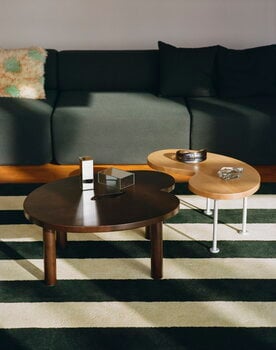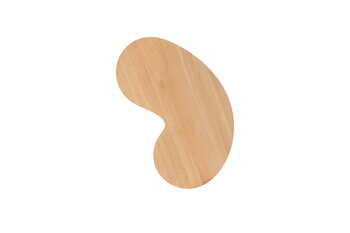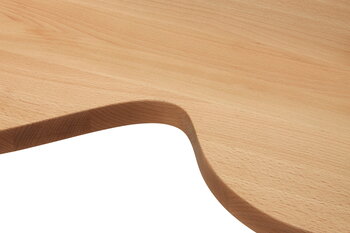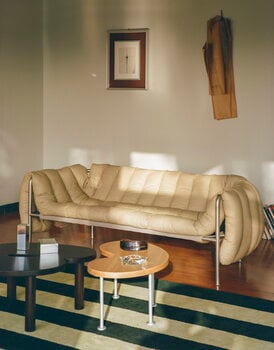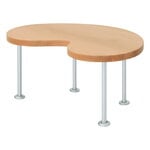HEM's Worm coffee table, created by Soft Baroque, is a playful and versatile wooden table, with a softly curved, asymmetrical tabletop inspired by digital design tools. The Worm table is available with either wooden or metal legs, but regardless of the model, the top is always made from solid wood.
The Worm table is delightful as a coffee table in a living room or as a lobby table in hotels and reception areas. Multiple tables can also be arranged into a dynamic composition, with different shapes and sizes embracing one another.

